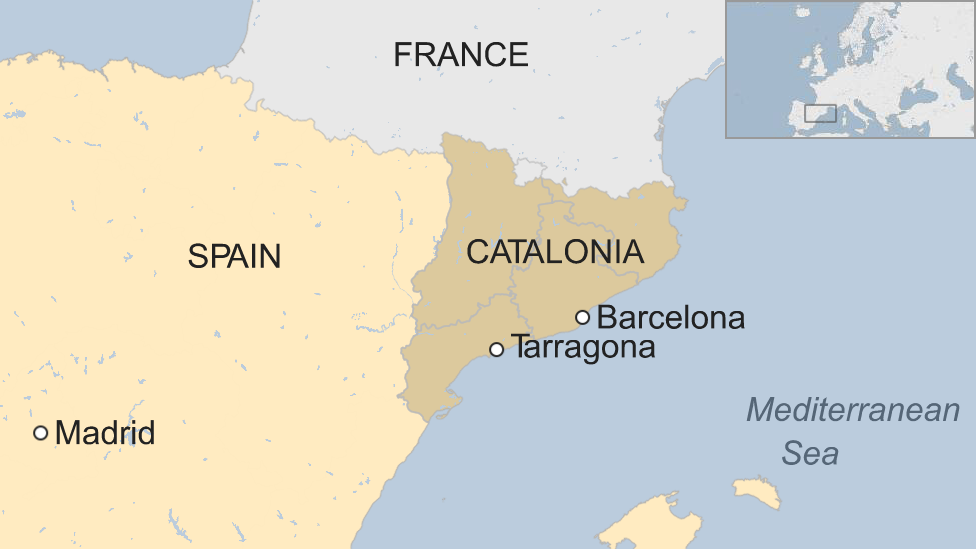Catalonia vote: Separatists claim pro-independence mandate
- Published
- comments
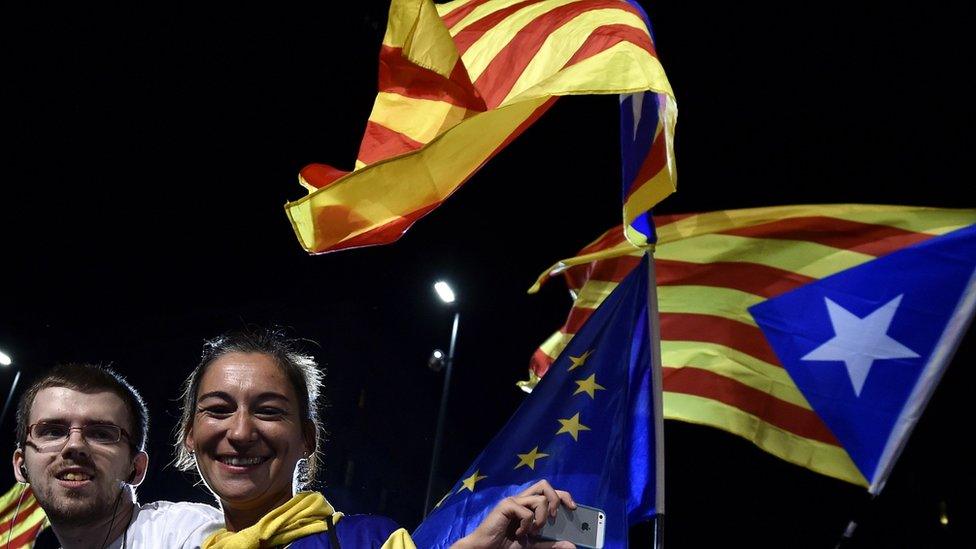
Pro-independence activists held mass rallies in Barcelona to celebrate the result
Catalan separatist parties say their victory in regional elections on Sunday gives them a mandate to push for independence from Spain.
The Madrid government has reaffirmed its opposition to a vote on secession, noting that nationalists failed to get a majority of Catalonia's popular vote.
The main separatist alliance and a small pro-independence party won 72 of the 135 regional parliament seats.
Despite their parliamentary majority, separatists got 47.8% of votes cast.
Catalonia has 7.5 million people and provides about one-fifth of Spain's national output (GDP).
'Yes to independence'
"Catalans have voted yes to independence," Catalan regional President Artur Mas told cheering supporters.
"We have a clear, absolute majority in the Catalan parliament to go ahead," Mr Mas added.
His "Junts pel Si" (Together For Yes) coalition has vowed to implement a "roadmap" to achieve an independent Catalan state within 18 months.
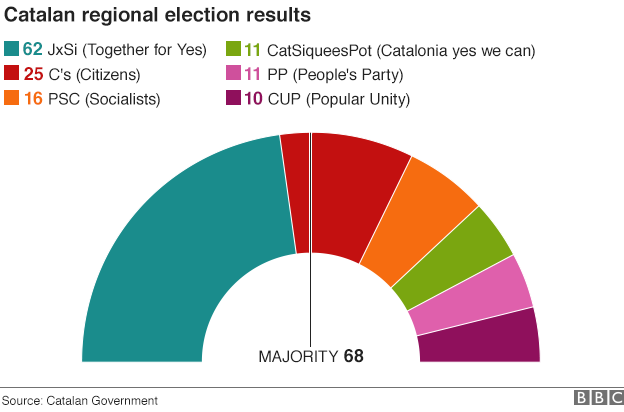

Catalan regional president Artur Mas is spearheading the independence campaign
The future of Catalonia is expected to be a crucial issue in Spain's general election in December.
The turnout of 78% was a record for a regional vote in Catalonia.
A spokesman for Spain's ruling conservatives, the Popular Party (PP), argued that the separatists had "failed" by not securing a majority of votes.
The PP's Pablo Casado said "this election should serve to end the independence debate once and for all".
Junts pel Si won 62 seats. It can secure a parliamentary majority by combining with the far-left separatist CUP party, which got 10 seats.
Pro-independence Catalans argue that their region gets an unfair deal, contributing too much tax to Madrid in return for insufficient state investment. In terms of GDP theirs is the richest region in Spain.

Analysis: BBC's Tom Burridge, Barcelona
The result was more ambiguous than the positive rhetoric suggests. The pro-independence camp continues to say they are ready to break away from Spain, even in the face of strong opposition from the Spanish government.
But they know that would be controversial and complicated. In truth, their aim is still to get a legally-recognised referendum.
So they will continue to pile the pressure on the government, safe in the knowledge that a Spanish general election is less than three months away.
A more fractured political landscape at the national level suggests there will either be a change in who holds power, or at least the position of the governing PP will be weakened. And that might lead to a change of stance over the Catalan question in Madrid.

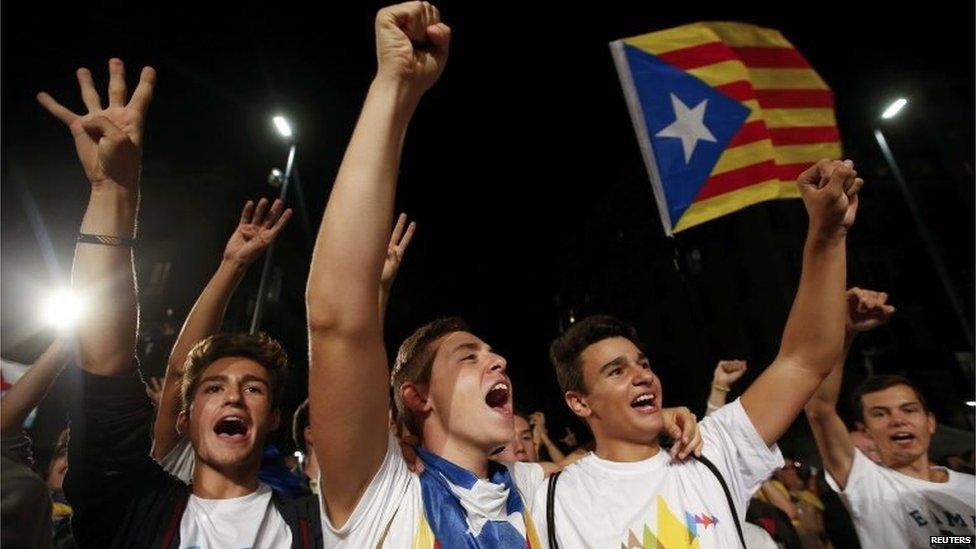
Opposition parties in Spain have criticised the PP's stance on Catalan independence.
Pablo Iglesias, leader of the left-wing protest party Podemos, said: "Only if our party governs in Spain can we build a country called Spain where there is also a place for a nation called Catalonia."
Podemos supports Catalonia's right to hold a referendum on independence, but does not want the region to break away.
Opinion polls suggest a majority of Catalans favour a referendum on independence but are evenly divided over whether to secede.
Liz Castro, chair of the Catalan National Assembly - a pro-independence civil society organisation - said she hoped Spain's government would be receptive to a negotiated separation.
"We hope that it's not going to be loggerheads. We would like, very much, for it to be a stable negotiated agreement, not about whether or not there is independence, but about when," she told the BBC.
The pro-independence parties said ahead of the vote that they considered it a de facto referendum on independence from Spain.
They argue that the Spanish government has consistently refused to allow a legally recognised referendum to take place, ignoring an unofficial vote backing independence in November 2014.
- Published25 September 2015
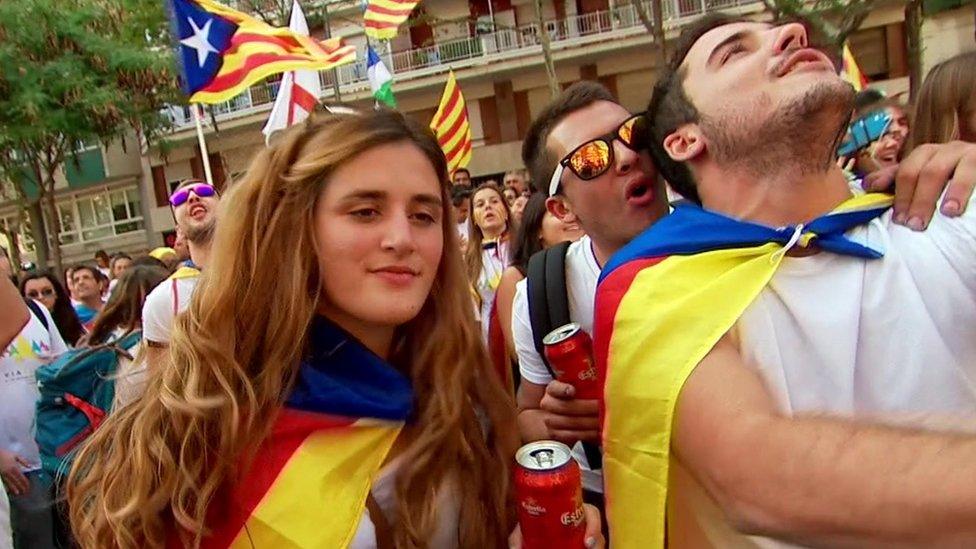
- Published18 October 2019
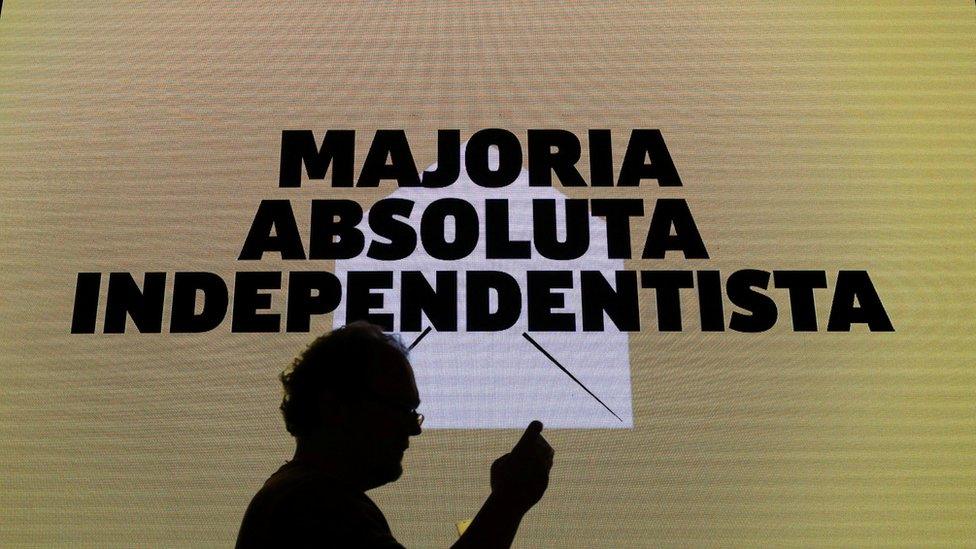
- Published11 September 2015
- Published21 August 2023
